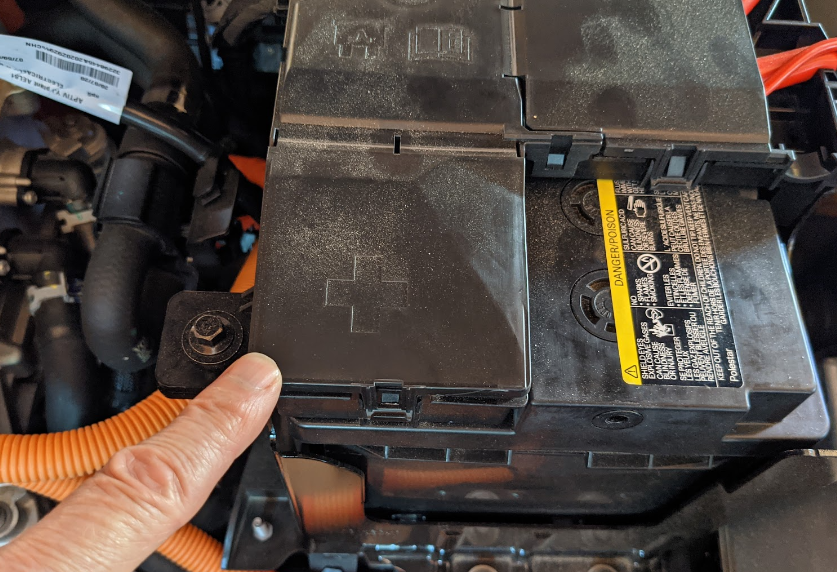Lead-Acid Batteries: A Low-Cost, High-Performance Energy Choice
Lead-acid batteries are popular because of their low production costs and excellent performance. As one of the earliest rechargeable batteries, it remains a strong and popular energy choice today, with a global market value of nearly $40 billion. Next, we will take a deep dive into the reasons to choose lead-acid batteries for power.
What are lead acid batteries?
As the preferred wet battery in automobiles, lead-acid batteries have the ability to withstand high surge currents, and their low energy density is sufficient to start the engine and provide reliable power to the vehicle.
In addition, the high surge characteristics of lead-acid batteries make them ideal for emergency backup systems that can quickly start generators and critical equipment. In forklift applications, the weight of lead-acid batteries acts as a counterbalance, increasing the stability and safety of the equipment.
Why Choose Lead-Acid Batteries for Power?
The stable performance and economics of lead-acid batteries make the transition to electrification particularly easy. Traditional and new lead-acid batteries meet different needs, and the low cost of entry makes electrification more feasible.
When it comes to choosing a battery, we have a variety of options for you, from classic to innovative. Traditional lead-acid batteries and new thin plate pure lead batteries have their own advantages in terms of cost, maintenance, operator involvement and uptime, ensuring they meet your specific business needs.
Environmental protection and compliance are the principles we always adhere to. Lead-acid batteries produce extremely low emissions during operation and are fully compliant with environmental regulations, allowing you to pursue high efficiency while achieving green travel.
For scenarios that require multi-shift operation, lead-acid batteries can easily handle it with their powerful performance and multi-battery configuration. This not only allows your equipment to go further, but also significantly improves operator efficiency.
Of course, a self-disciplined operator is critical to the performance of lead-acid batteries. Proper charging and maintenance procedures will ensure stable battery operation, extend battery life and add value to your investment.
Lead-acid batteries have a history of more than 50 years in the material handling industry, and their stability and reliability are widely recognized after countless field tests. When you choose lead acid batteries, you are choosing a proven and widely used solution.
Finally, we are committed to providing you with the most cost-effective electrification solution. With minimal upfront investment, you can gain a competitive advantage by efficiently electrifying your fleet.
Advantages and Benefits of Lead-Acid Batteries
Lead-acid batteries have become a popular choice in the market due to their many advantages. First, they are cost-effective, making them very attractive to users with limited budgets. Second, they are rechargeable, adaptable to different application environments and operating temperatures, and have a long service life, ensuring a long-lasting and stable power supply. In addition, their stable and reliable performance and low failure rate make them an ideal choice for users who demand excellent performance and stability. Due to their excellent performance, lead-acid batteries are widely trusted and used in critical areas and situations where reliability is crucial.
Disadvantages and drawbacks
Although lead acid batteries have many advantages, they also have some disadvantages that cannot be ignored. First, lead-acid batteries are extremely sensitive to storage and charging conditions. If they are improperly stored or improperly charged, their life will be greatly shortened, and even the battery will be damaged and cannot be recharged. Therefore, proper storage and charging methods are critical when using lead-acid batteries.
In addition, the corrosiveness of lead-acid batteries is also a major problem. The electrolyte inside the battery is highly acidic. If it accidentally comes into contact with the skin, it will cause severe burns and long-term damage. Therefore, when operating lead-acid batteries, necessary protective measures must be taken to avoid direct contact with the electrolyte to ensure personal safety.
-
 Introduction Lithium iron phosphate (LiFePO4) batteries are quickly becoming a popular choice for powering devices and vehicles, particularly electric cars. These batteries are known for their longevity and durability, making them an ideal option for applications that require reliable, long-lasting power. In this article, we will explore the lifespan of LiFePO4 batteries, including factors that impact their longevity and...続きを読む
Introduction Lithium iron phosphate (LiFePO4) batteries are quickly becoming a popular choice for powering devices and vehicles, particularly electric cars. These batteries are known for their longevity and durability, making them an ideal option for applications that require reliable, long-lasting power. In this article, we will explore the lifespan of LiFePO4 batteries, including factors that impact their longevity and...続きを読む -
 A Lifepo4 battery pack is a type of rechargeable battery that is designed to provide long-lasting power for a variety of applications. These batteries are known for their high energy density, low self-discharge rate, and long cycle life, making them an ideal choice for use in electric vehicles, home energy storage systems, and other industrial applications. One of the...続きを読む
A Lifepo4 battery pack is a type of rechargeable battery that is designed to provide long-lasting power for a variety of applications. These batteries are known for their high energy density, low self-discharge rate, and long cycle life, making them an ideal choice for use in electric vehicles, home energy storage systems, and other industrial applications. One of the...続きを読む -
 IntroductionThe locomotive starter battery is an essential component of today\'s railway system. It is responsible for providing the initial power to start the locomotive engine, which then powers the train. The battery also provides backup power in case of a power failure or emergency. In this article, we will discuss the role of the locomotive starter battery in powering up...続きを読む
IntroductionThe locomotive starter battery is an essential component of today\'s railway system. It is responsible for providing the initial power to start the locomotive engine, which then powers the train. The battery also provides backup power in case of a power failure or emergency. In this article, we will discuss the role of the locomotive starter battery in powering up...続きを読む -
 In recent years, the demand for efficient and sustainable energy storage systems has been on the rise. The growing focus on renewable energy sources, such as solar and wind power, has led to the development of advanced battery technologies capable of meeting the increasing energy storage requirements. Among these technologies, the Lithium Iron Phosphate (LiFePO4) 48V battery has emerged as...続きを読む
In recent years, the demand for efficient and sustainable energy storage systems has been on the rise. The growing focus on renewable energy sources, such as solar and wind power, has led to the development of advanced battery technologies capable of meeting the increasing energy storage requirements. Among these technologies, the Lithium Iron Phosphate (LiFePO4) 48V battery has emerged as...続きを読む -
 The military has always been at the forefront of technological advancements. From the invention of radar to the development of stealth aircraft, military innovations have often found their way into the civilian world. In recent years, one such advancement that is revolutionizing military equipment is the use of lithium batteries. Lithium batteries are rechargeable batteries that use lithium ions...続きを読む
The military has always been at the forefront of technological advancements. From the invention of radar to the development of stealth aircraft, military innovations have often found their way into the civilian world. In recent years, one such advancement that is revolutionizing military equipment is the use of lithium batteries. Lithium batteries are rechargeable batteries that use lithium ions...続きを読む -
 In the automotive field, the battery is one of the core components and its performance and quality are directly related to the starting, operation and overall performance of the vehicle. Today, let's take a closer look at the 12.8V 60Ah car battery and see what features and advantages it has. 1. Voltage and Capacity First, the voltage of the 12.8V...続きを読む
In the automotive field, the battery is one of the core components and its performance and quality are directly related to the starting, operation and overall performance of the vehicle. Today, let's take a closer look at the 12.8V 60Ah car battery and see what features and advantages it has. 1. Voltage and Capacity First, the voltage of the 12.8V...続きを読む -
 Introduction Motorcycle batteries are an essential component in any motorcycle. They provide the electrical power required to start the engine, run the lights, and power other electrical accessories. Lithium iron phosphate (LiFePO4) batteries are becoming increasingly popular in the motorcycle industry due to their high energy density, low weight, and long lifespan. In this article, we will discuss the...続きを読む
Introduction Motorcycle batteries are an essential component in any motorcycle. They provide the electrical power required to start the engine, run the lights, and power other electrical accessories. Lithium iron phosphate (LiFePO4) batteries are becoming increasingly popular in the motorcycle industry due to their high energy density, low weight, and long lifespan. In this article, we will discuss the...続きを読む

